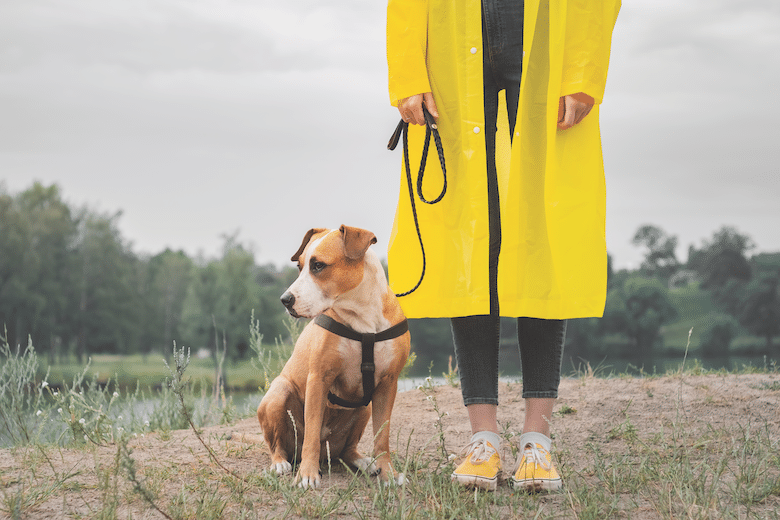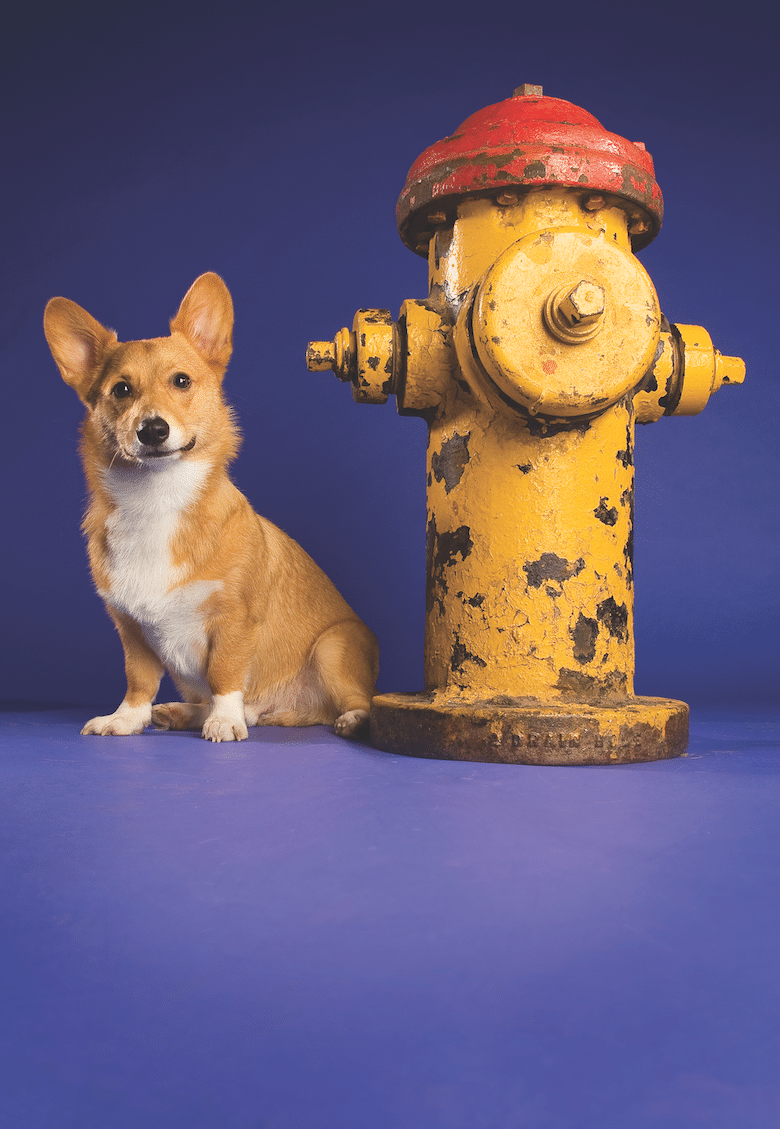When you have dogs, piddle happens. Sometimes, it occurs in appropriate locations, like your backyard. Sometimes, it surfaces on cherished items in your home, like your bedroom pillow.
There is always a reason — medical or behavioral — behind your dog’s potty actions. With the help of two seasoned veterinarians, we identify and offer solutions/explanations for these six perplexing potty problems.

Photo: PaoloCremonesi | Getty Images
Your dogs pee on top of each other’s urine in the backyard.
Reason/Solution: Dogs depend on “pee mail” like we depend on phone texts to communicate. Our dogs can smell 40 times better than we can and sniffing urine downloads a lot of data: the dog’s gender, health condition and social ranking. So, when you see Dog A pee and then Dog B races over to pee on top of that spot, followed by Dog C, it is a way your dogs are establishing their social rank among one another, explains Dr. Lisa Lippman, a former emergency medicine veterinarian and now house call veterinarian for Off Leash Veterinary Care in New York City.
“The scent of urine from previous dogs is like a big green sign telling your dog, ‘Pee here,’” says Dr. Lippman.
Unless the dogs get into fights, let it be. They are reminding each other who outranks who in the pack.
Your dog’s urine emits a strong, pungent odor.
Reason/Solution: Pay attention to this one. It could signal that your dog has a serious kidney or bladder infection. Common causes can include an endocrine disease (such as diabetes or Cushing’s disease), injury and bacterial infections, Dr. Lippman says. So,book an appointment with your veterinarian.
Once there, your veterinarian is likely to take a urine sample from your dog at the clinic to help with the appropriate treatment plan. The veterinarian may insert a needle into your dog’s bladder (a procedure called cystocentesis) or palpate your dog’s bladder and collect his urine in a pan (this is the free-catch sample method). One ounce of your dog’s urine is plenty for your veterinarian to run a number of tests and narrow down the possible causes of the foul odor, says Dr. Lippman.

Photo: Holly Hildreth Photoboyko | Getty Images
My dog refuses to potty in the rain. How long can he hold it?
Reason/Solution: Some dogs simply don’t like getting wet and would rather wait to return to the comfort of their homes rather than go to the bathroom during a rainstorm.
“Try using an umbrella to shelter them from the rain,” suggests Dr. Lippman. “You can also use treats and condition them to wear doggy rain gear and boots. Even though you may be frustrated, resist scolding because your dog may associate the rain with being reprimanded, making it even more challenging for him to pee in the rain.”
Adds Dr. Kathryn Primm, owner of the Apple-brook Animal Hospital in Ooltewah, Tennessee and the country’s first Fear-Free Pets certified veterinarian: “Try using high-value treats like tiny pieces of shredded cheese or boiled chicken, torn into shreds. Use high-value treats to encourage your dog to go when the circumstances are not her first choice, like rain.”
The bottom line for your dog’s bottom actions: gather clues, gather evidence and work with your veterinarian on finding a workable solution.

Photo: Holly Hildreth Photography
My dog eats poop from our cat’s litter box or poop from other dogs, rabbits and ducks on walks.
Reason/Solution: “Studies have shown that coprophagia (poop eating) can be normal behavior for canines, even though it grosses us out,” says Dr. Primm. “It’s like your dog is saying to your cat, ‘Hey, wait, cat. You can’t throw that out. It’s still good!’”
Among the medical and behavioral reasons for poop consumption are the lack of needed digestive enzymes in their diet, sheer boredom, seeking attention from you and because some dogs simply like the taste of these poopy treasures.
Dr. Primm suggests that you prevent access to the cat litter box from your dog and consider training your poop-eater during walks to wear a basket muzzle using Fear Free techniques so it becomes a normal part of the walking attire.
Also consult your veterinarian to review what you are currently feeding your dog in case you need to make dietary changes.
Poop consumed from “finds” on your dog walk may also harbor harmful bacteria and parasites. Keep your dog on a 4- to 6-foot leash so you can steer him away from gobbling up these stinky treats on your walks.
My dog is unable to pee. She squats and nothing comes out.
Reason/Solution: The causes could include urinary blockage, urinary stones and tumors. Whatever the cause, regard this as a major medical emergency that warrants immediate veterinary attention.
Dr. Primm says. “If you think about urine and where it comes from and where it goes, then being unable to urinate implies that either urine isn’t being produced or it cannot get out from where it is stored in the bladder,” she says. “Either one is a big deal. This is a medical emergency that should not be ignored for quality of life issues.”

Photo: Amax Photo | Getty Images
My dog is urinating on my bed pillow. I am not happy.
Reason/Solution: Replacing pillows can be expensive and time consuming, but unleash your pet detective skills — and not your temper — to identify possible clues for your dog’s sudden break from his perfect housetraining streak.
“First, make absolutely sure there is no medical reason,” says Dr. Primm. “It isn’t fair to label a dog with a medical issue as just being ‘bad’ or even having a behavioral issue.”
Your dog may have diabetes, a leaky bladder or a urinary tract infection. Or, he may piddle when he becomes overly excited during play and accidentally piddles on your pillow. Submissive or fearful dogs may pee on your pillow because it contains a strong scent of you and helps them feel less exposed and vulnerable.
“What is clear is that dogs do not pee out of spite,” says Dr. Lippman. “Do your best to keep the bedroom closed off from your dog and consider crate training your dog when you aren’t around to supervise him.”
Featured Image: K_Thalhofer | Getty Images
Read Next: House Training a Dog? Try These 5 Tricks
